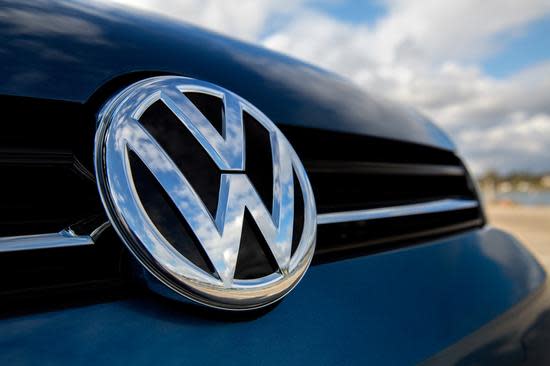Has Volkswagen's EV Growth Engine Stalled Out?

Volkswagen AG (XTER:VOW3) began its vaunted electric offensive in November 2018 with the splashy promise to invest $50 billion in electric vehicles over the next five years. A relatively late entrant to the EV race, the German automaker pledged to make up for lost time. It set itself the ambitious goal of leapfrogging its industry rivals, many of which had made big bets on EVs years earlier.
At first, all indications suggested the company's aggressive EV strategy was paying off. Lately, however, the situation has become far less clear. Indeed, there are worrying signs that Volkswagens EV project has begun to stall.
Initial success drives optimism
Volkswagens initial EV launch was bolstered by an array of new vehicle models that were already ready to be rolled out to consumers. These models were designed around a shared platform known as the Modular Electric Drive Matrix, or MEB. This proprietary drive platform was optimized for modularity, allowing it to serve easily in a range of vehicles. This feature would be critical to operationalizing Volkswagens ambitious EV product roadmap, which aimed to launch at least 70 new battery-electric vehicle models by 2028. The roadmap also set an ambitious sales target, projecting 22 million BEV deliveries in 2028.
Its EV rollout started strong. The company sold 45,850 BEVs in Europe in 2019, enough for third place among automakers in the worlds most sophisticated EV market. In 2020, Volkwagens sales surged more than 300% to secure first place in the European EV market. In 2021, it nearly doubled global BEV deliveries to 452,900 vehicles worldwide.
After years of red-hot growth, however, Volkswagens EV business began to show some signs of cooling in 2022. While sales growth continued last year, the pace of growth fell. With a final global deliveries tally of 572,100 vehicles, Volkswagens BEV sales were up just 26% from 2021.
Slowing growth raises concerns
While 26% annual growth can hardly be characterized as a failure in absolute terms, the relative decline in Volkswagens pace of growth in 2022 was more than enough to concern some analysts and investors. The company has managed to allay some of these concerns, revving up EV sales since the start of the year. The automaker delivered strong BEV growth in the first half of 2023, as CleanTechnica reported on July 14:
Volkswagen Groups electric transition is continuing at a good pace. Its pure electric (BEV) sales were up nearly 50% in the first six months of 2023 compared to the first six months of 2022. They grew from 217,200 to 321,600. Furthermore, there are another 200,000 or so BEV orders on the books just in Western Europe. Reaching 321,600 deliveries in the first half of the year, that was 7.4% of Volkswagen Groups overall vehicle deliveries. Thats an increase from the companys 5.6% figure for the first half of 2022.
Volkswagen has accelerated growth considerably from 2022, but the pace of growth is still anemic compared to prior years. It has also fallen short of its own expectations. The company had targeted deliveries of close to 1 million BEVs in 2023, with BEVs accounting for around 11% of all vehicle sales. With the first half of the year in the rearview mirror, those targets already appear to be out of reach. With just 321,600 deliveries through June, Volkswagen is well off the pace.
The company's BEV fortunes have diverged across major markets. While the automaker has maintained its status as the top EV player in the European market ever since claiming first place in 2020, it has struggled in the Chinese market. In the first half of 2023, Volkswagen utilized just 16% of its MEB platform production capacity in China. This underutilization was the result of anemic sales, with the exception of the popular ID.3 model, which saw deliveries increase 53% from the same period last year. Meanwhile, all other ID series models experienced significant sales declines year over year, resulting in a 19% overall decline in deliveries for the series.
Resetting expectations
As a result of its slowing overall growth combined with its recent reversals in China, Volkswagen has been forced to acknowledge that its initial EV growth targets are no longer achievable. On July 6, the company announced production cuts at its principal EV plant in Germany, citing customer resistance to EV adoption. This was followed by the announcement during its July 27 earnings report that it had cut its full-year delivery targets while reporting its first-half financial results. During the earnings presentation, it fell to Chief Financial Officer Arno Antlitz to address the headwinds curtailing Volkswagens growth ambitions:
"Competition is intensifying and customers are cautious. We need to achieve the first results of these programmes in the second half of 2023 to make us more resilient."
Despite the recent headwinds, Volkswagen has not wavered meaningfully from its long-term ambition of leading the global EV sector. Indeed, the automaker underlined its continued commitment to electrification in March, when it announced its plan to invest another $193 billion in EVs and software development over the next five years.
My take
Clearly, Volkswagen is finding the transition to EVs somewhat more difficult than it had first expected. Its recent setbacks have also forced it to undertake a clear-eyed reassessment of its plan and targets. Despite its cash flow shortfalls in the first half of 2023, Volkswagen has the resources necessary to fund its transformation, whatever the pace of EV adoption by the wider consumer market.
It is also clear the German auto giant faces a key test in China. Its success or failure will have far-reaching implications for the companys long-term growth trajectory. In my assessment, investors would be wise to follow that story closely as it develops.
This article first appeared on GuruFocus.
